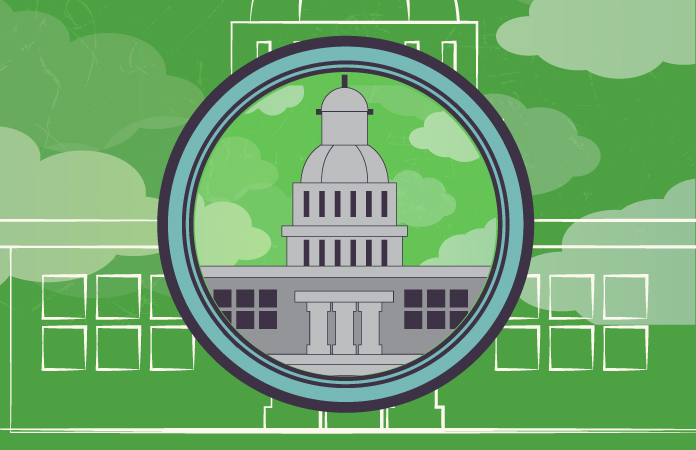

Lawmakers appear to be hitting a stride in the early stages of the session, introducing more than 200 bills so far.
This week, bills introduced included one that would provide more training to judicial personnel for survivor and victim awareness, one that would require certain types of employers to pay employees predictability pay when an employer makes certain changes to an employee’s work schedule and one that would extend the Office of Public Guardianship indefinitely and require it to operate in every judicial district in the state by Dec. 31, 2027.
Another bill introduced would give the state’s Independent Ethics Commission jurisdiction over officials or employees of special districts or school districts.
Bill Number: HB23-1108
Title: Victim And Survivor Training For Judicial Personnel
Introduced: Jan. 24
Sponsors: M. Duran, G. Evans
Summary: The bill would create a task force to study victim and survivor awareness and responsiveness training requirements for judicial personnel in the Office for Victims Programs in the Division of Criminal Justice. The task force consists of members who have experience representing victims and survivors of domestic violence, sexual assault or other crimes; lived experience as a victim or survivor of domestic violence, sexual assault or other crimes; or are members of the judicial community.
Bill Number: HB23-1118
Title: Fair Workweek Employment Standards
Introduced: Jan. 24
Sponsors: E. Sirota, S. Gonzales-Gutierrez, J. Gonzales, F. Winter
Summary: The bill would impose requirements for certain types of employers with regard to the determination of employee work schedules, employee requests for changes to work schedules and notices and posting of employee work schedules. In addition to pay for hours worked by the employee, the bill would require certain types of employers to pay employees predictability pay when an employer makes certain changes to an employee’s work schedule, among other things.
Bill Number: HB23-1100
Title: Restrict Government Involvement In Immigration Detention
Introduced: Jan. 23
Sponsors: N. Ricks, L. Garcia, S. Jaquez Lewis, J. Gonzales
Summary: U.S. Immigration and Customs Enforcement contracts out a portion of its detention capacity to state and local governments. State and local governments may then subcontract with prisons or immigration detention facilities that are owned, managed or operated by private entities to house or detain individuals for federal civil immigration purposes. Beginning Jan. 1, 2024, the bill would prohibit the state and any local government in the state from entering into such an agreement with a private entity, among other provisions.
Bill Number: HB23-1095
Title: Prohibited Provisions In Rental Agreements
Introduced: Jan. 20
Sponsors: S. Woodrow, M. Lindsay
Summary: Current law prohibits a written rental agreement from including an unreasonable liquidated damages clause that assigns a cost to a party stemming from an eviction notice or an eviction action for a violation of the rental agreement or a one-way, fee-shifting clause that awards attorney fees and court costs only to one party. Any fee-shifting clause in a rental agreement must award attorney fees to the prevailing party in a court dispute. The bill would amend these prohibitions and add a few provisions. Under the bill, a written rental agreement must not include any clause that assigns a penalty to a party stemming from an eviction notice or an eviction action that results from a violation of the rental agreement and any fee-shifting clause in a rental agreement must award attorney fees to the prevailing party only following a determination the party prevailed and the fee is reasonable.
Bill Number: SB23-064
Title: Continue Office Of Public Guardianship
Introduced: Jan. 20
Sponsors: B. Gardner, J. Ginal, M. Snyder
Summary: Under existing law, the Office of Public Guardianship is authorized to serve indigent and incapacitated adults in need of guardianship in three judicial districts and is scheduled to repeal on June 30, 2024. The bill would extend the office indefinitely and would require the office to operate in every judicial district in the state by Dec. 31, 2027. The bill would also establish a board of directors to oversee the office.
Bill Number: HB23-1065
Title: Local Government Independent Ethics Commission
Introduced: Jan. 19
Sponsors: T. Story, J. Parenti
Summary: Under current law, the Independent Ethics Commission doesn’t have jurisdiction over officials or employees of special districts or school districts. The bill would give the commission jurisdiction to hear complaints, issue findings, assess penalties and issue advisory opinions on ethics issues concerning a local government official or local government employee. “Local government” is defined to include a county, municipality, special district or school district.
Bill Number: HB23-1066
Title: Public Access Landlocked Publicly Owned Land
Introduced: Jan. 19
Sponsors: B. Bradley
Summary: The bill would authorize an individual to move from one corner of public land to another corner of public land where two public parcels meet two private parcels and share a common border, without being liable for criminal or civil trespass, if certain conditions are met.

Law Week’s legislative tracking is done through State Bill, a product of our publisher, Circuit Media.

